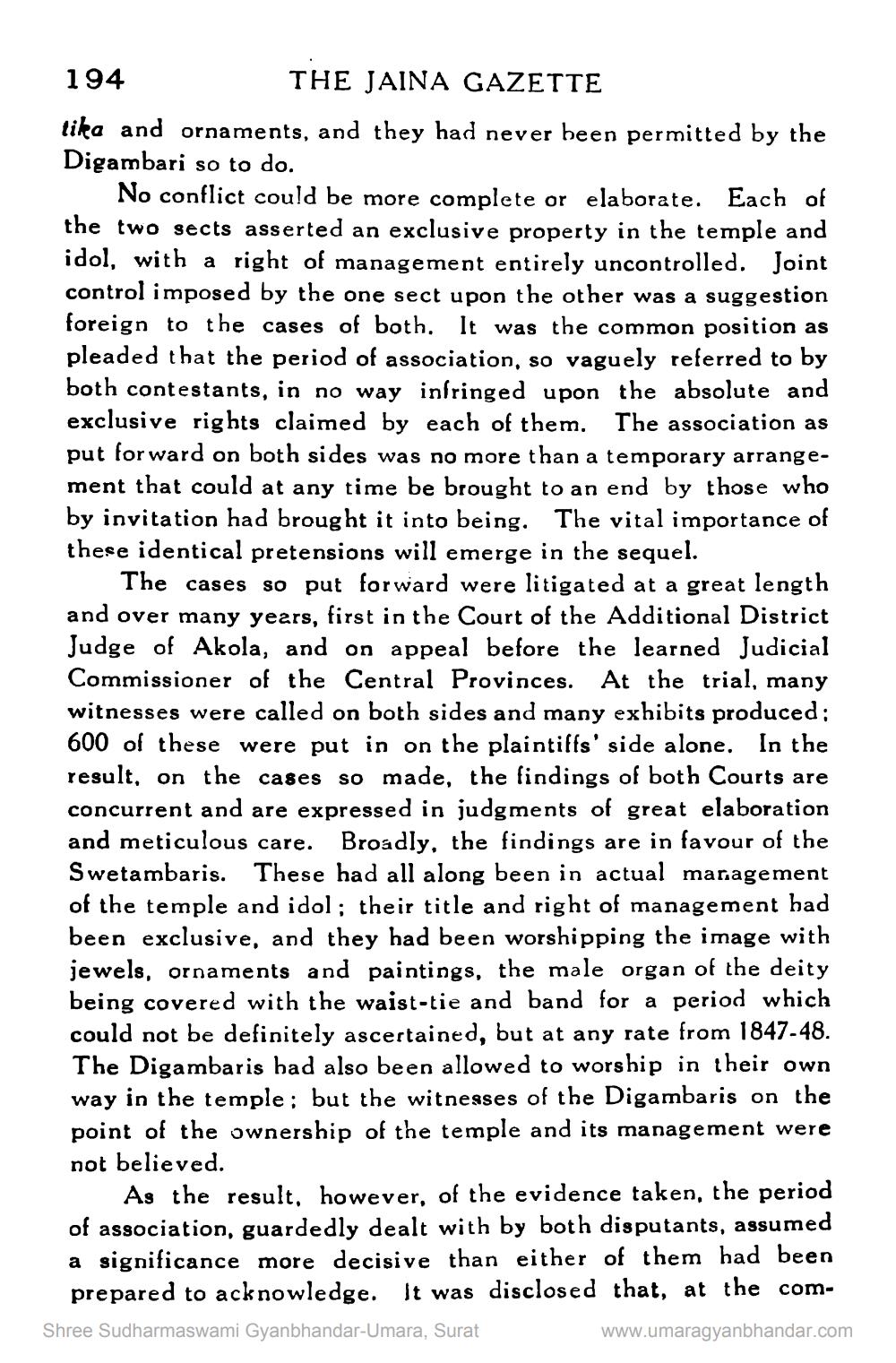________________
194
THE JAINA GAZETTE tika and ornaments, and they had never been permitted by the Digambari so to do.
No conflict could be more complete or elaborate. Each of the two sects asserted an exclusive property in the temple and idol, with a right of management entirely uncontrolled. Joint control imposed by the one sect upon the other was a suggestion foreign to the cases of both. It was the common position as pleaded that the period of association, so vaguely referred to by both contestants, in no way infringed upon the absolute and exclusive rights claimed by each of them. The association as put forward on both sides was no more than a temporary arrangement that could at any time be brought to an end by those who by invitation had brought it into being. The vital importance of these identical pretensions will emerge in the sequel.
The cases so put forward were litigated at a great length and over many years, first in the Court of the Additional District Judge of Akola, and on appeal before the learned Judicial Commissioner of the Central Provinces. At the trial, many witnesses were called on both sides and many exhibits produced: 600 of these were put in on the plaintiffs' side alone. In the result, on the cases so made, the findings of both Courts are concurrent and are expressed in judgments of great elaboration and meticulous care. Broadly, the findings are in favour of the Swetambaris. These had all along been in actual management of the temple and idol ; their title and right of management had been exclusive, and they had been worshipping the image with jewels, ornaments and paintings, the male organ of the deity being covered with the waist-tie and band for a period which could not be definitely ascertained, but at any rate from 1847-48. The Digambaris bad also been allowed to worship in their own way in the temple: but the witnesses of the Digambaris on the point of the ownership of the temple and its management were not believed.
As the result, however, of the evidence taken, the period of association, guardedly dealt with by both disputants, assumed a significance more decisive than either of them had been
prepared to acknowledge. It was disclosed that, at the comShree Sudharmaswami Gyanbhandar-Umara, Surat
www.umaragyanbhandar.com




